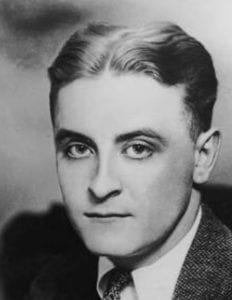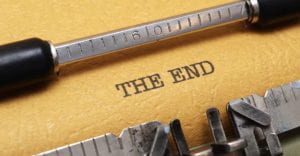 The Great Gatsby is now recognised as a masterpiece. But, F. Scott Fitzgerald (left) never saw his book become a success. In fact, at his untimely death at the age of 44, he had earned a grand total of $13.13 in royalties. When it was published in 1925, Gatsby sold a disappointing 21,000 copies. And there were reportedly still copies from the second printing in the Scribner warehouse when Fitzgerald died in 1940. It’s shocking how long it took The Great Gatsby to be considered a classic. It wasn’t until April 24, 1960, for example, that The New York Times wrote: “It is probably safe now to say that The Great Gatsby is a classic of twentieth-century American fiction.”
The Great Gatsby is now recognised as a masterpiece. But, F. Scott Fitzgerald (left) never saw his book become a success. In fact, at his untimely death at the age of 44, he had earned a grand total of $13.13 in royalties. When it was published in 1925, Gatsby sold a disappointing 21,000 copies. And there were reportedly still copies from the second printing in the Scribner warehouse when Fitzgerald died in 1940. It’s shocking how long it took The Great Gatsby to be considered a classic. It wasn’t until April 24, 1960, for example, that The New York Times wrote: “It is probably safe now to say that The Great Gatsby is a classic of twentieth-century American fiction.”
Masterful Flop Part Deux
Not only did Gatsby practically go unnoticed by American readers, but Fitzgerald himself by the end of his life was rarely, if at all, mentioned as one of America’s greatest writers. Such a perception became a harsh painful reality for Fitzgerald in 1937 when he walked into a bookstore to buy copies of his books for his companion Sheilah Graham only to discover there were no books, not one, of his on the shelves.
Now, more than 25 million copies of “The Great Gatsby” have been sold worldwide since the novel’s original publication in 1925, while more than 15 million copies have been sold in North America alone.’’ More than 500,000 copies of The Great Gatsby sell every year (across print and eBook editions). After all, great writing transcends place, race and time. Other publisher’s rejection comments for great books include:
The Wind in the Willows by Kenneth Grahame
‘an irresponsible holiday story’
Lord of the Flies by William Golding
‘an absurd and uninteresting fantasy which was rubbish and dull.’
Watership Down by Richard Adams
‘older children wouldn’t like it because its language was too difficult.’
On Sylvia Plath
‘There certainly isn’t enough genuine talent for us to take notice.’
The Diary of Anne Frank
‘The girl doesn’t, it seems to me, have a special perception or feeling which would lift that book above the “curiosity” level.’

